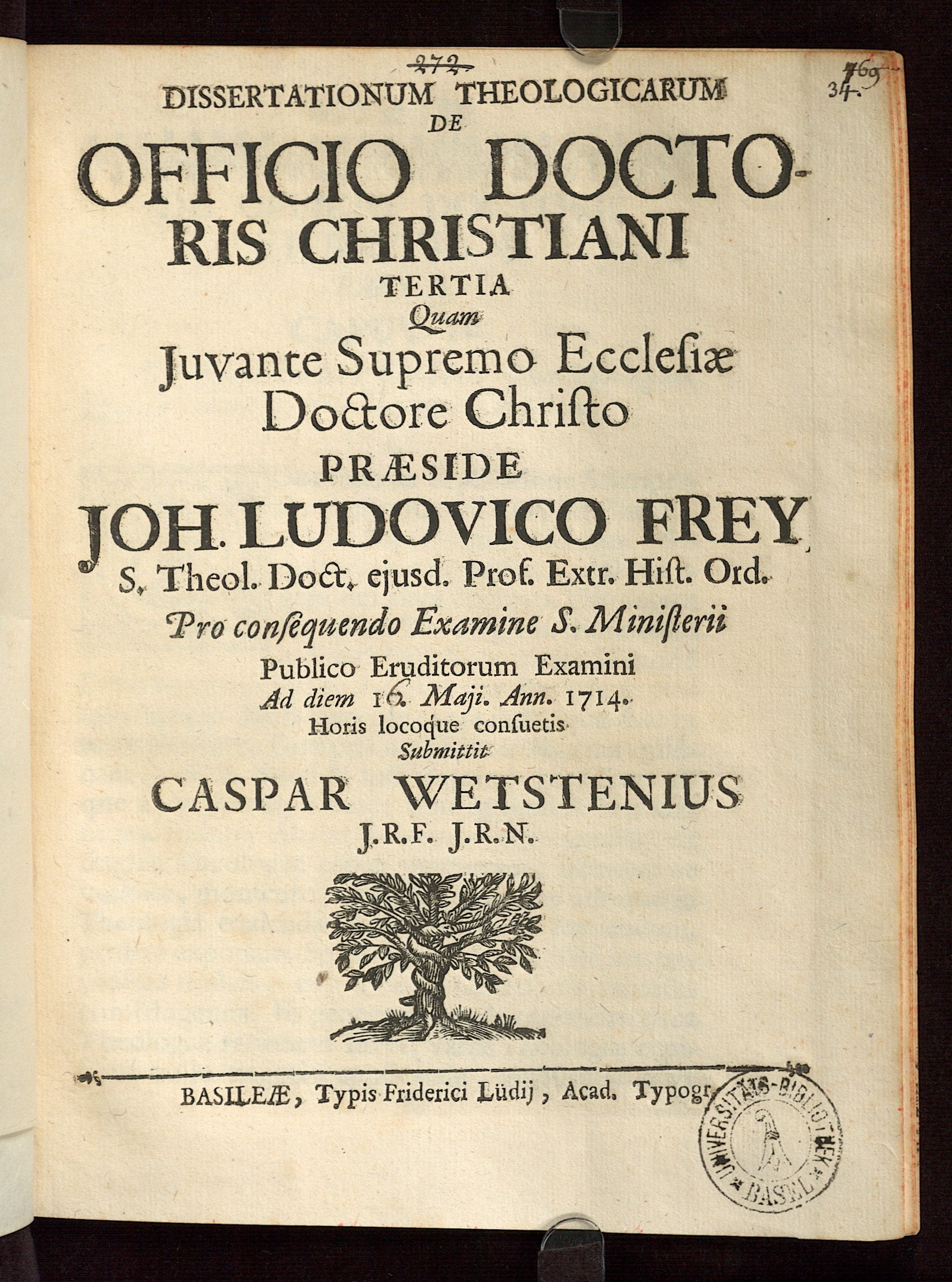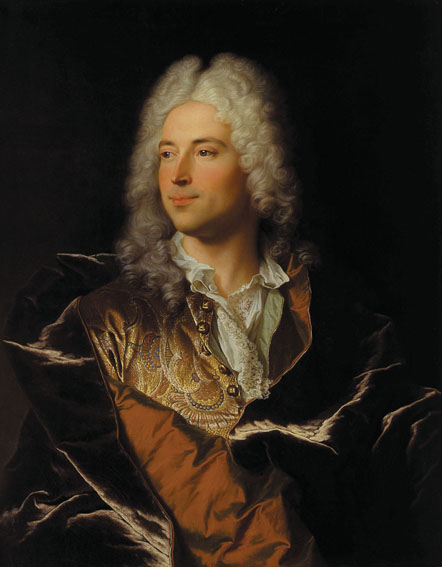Wettstein's Friends


During the early eighteenth century, a surplus of graduates at continental universities led many young academics to take up new professions or to move abroad. One of these precarious men was Johann Caspar Wettstein (1695–1760), who studied theology at the University of Basel. Between 1707 and 1714, Wettstein engaged with important Enlightenment scholars, who took a relatively moderate stance towards religious orthodoxy. The Basel theologians Samuel Werenfels (1657–1740) and Jakob Christoph Iselin (1681–1737) would deeply shape Wettstein’s education. He maintained a correspondence with both scholars long after finishing his studies.
Even if he would never produce important biblical scholarship like his more well-known cousin, the New Testament scholar Johann Jakob Wettstein (1693–1754), Caspar graduated in 1714 with a theological dissertation (see Fig. 1) that was supervised by his teacher Johann Ludwig Frey (1682–1759). After graduating, Wettstein built on the network of Anglo-Swiss confessional exchange which he became associated with through his family and his studies in Basel. Frey is known as an anglophile collector of books, while his cousin Johann Jakob would spend time at Cambridge with the classicist Richard Bentley (1662–1742) in 1716. After finding work as a domestic chaplain in Paris for a number of years, Wettstein accompanied the diplomat Sir Luke Schaub (1690–1758) (see Fig. 2), British envoy to France and like Wettstein a native of Basel, to London as his private secretary.
In a French letter which is kept at Basel University Library, Wettstein reflected on his departure to England to his former teacher in 1724. He now had to learn English in order to converse and correspond with his new colleagues in London. In addition to learning the language, he also wished to get to know English authors, as he emphasised in his letter sent from Paris (transl. PBS):
The liking which I will take towards the country where I will find myself will determine the visit which I will make there; I hope at least to rest there long enough to learn the language well and to get to know their authors. Those which I have read here in English have greatly pleased me and also disgusted me a little bit.
For their future correspondence, Frey should address all his letters to Wettstein’s mother in Basel, Ursula Wettstein (died 1738), who then probably forwarded the letters to London. Frey, whose grandfather Johann Jacob Frey (1606–1636) already travelled widely in England, and who was related to the Wettstein family, had procured English books through Wettstein’s cousin in 1716. He also edited a new edition of the collection of writings, which his colleague Werenfels had written for the new English missionary society, the Society for the Propagation of the Gospel (SPG), in 1709, while translating English theological works into Latin.
Sharing his teacher’s anglophilia, Wettstein would stay in England and eventually become tutor to Lionel Tollemache (1708–1770), the young Earl of Dysart, in the 1720s. In spite of his precarious social position, he never became part of the “clandestine precariat” of the early Enlightenment championed by Martin Mulsow in his monograph Knowledge Lost: A New View of Early Modern Intellectual History (Princeton, 2022). On the contrary, he shifted gears and made his way as an information worker by serving diplomats and politicians as a secretary, tutor and chaplain. Together with four other Swiss chaplains who moved to Britain in the late seventeenth and early eighteenth century, Wettstein is one of the case studies of my project on Anglo-Swiss confessional networks for SwissBritNet, which will cast light on Wettstein and other Swiss migrants who found work in eighteenth-century Britain.
Philippe Bernhard Schmid